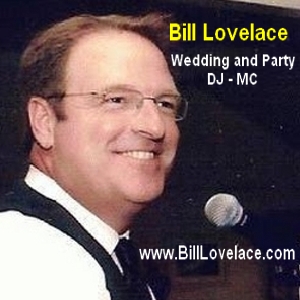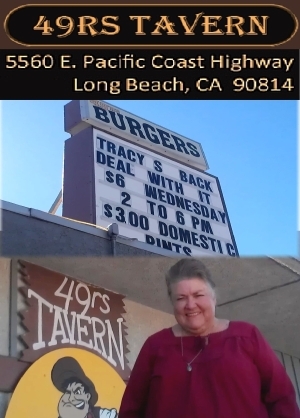Shortly after taking office, Mayor Bob Foster proposed a package of Charter Amendments, one of which proposed to weaken LB's term limits law by allowing incumbents three terms (12 years) instead of two (8 years). The Foster/Council proposed Term Limits measure (Proposition C) failed with roughly 68% of LB voters voting "no."
Sponsor | Sponsor |
However, on the same May 2007 ballot, LB voters approved a measure easing term limits for incumbents (Proposition D) by allowing an incumbent who finished first or second in an April initial election to have his/her name printed on the June runoff ballot (see below).
The Garcia-proposed term limits Charter Amendment would similarly allow incumbents three terms/12 years (as did the measure rejected by voters in 2007) but would allow no further terms via write-in or otherwise. To date, no LB incumbent has sought terms beyond 12 years since voters enacted term limits. (LBREPORT.com coverage here.)
Sponsor |  |
Below are the May 2007 ballot arguments offered in support of, and in opposition to, Proposition C, the 2007-failed three term/12 year proposal:
Argument For Proposition COur City government needs reform.
Two term limits on elected officials have done a disservice to our City. It encourages elected officials to pursue short-term policy successes that will allow them to run for higher office in order to avoid being termed-out, rather than look for long-term solutions to challenges facing our city.
When experienced representatives are termed-out, replacements must rely heavily on bureaucrats and lobbyists for expertise. These new elected officials can avoid accountability for the long-term effects of policies enacted by the previous officeholder. We need to hold our elected officials accountable for the long-term impacts of their decisions.
Harbor Commissioners and Water Commissioners currently have longer terms of office than the Mayor and City Council who appoint them. These non-elected commissioners need to have their terms of office brought in line with elected officials in order to make them responsive to the public.
A YES vote on Proposition C establishes a limit of three terms for City Council members to increase accountability and reduce the influence of lobbyists and bureaucrats.
A YES vote on Proposition C changes the terms of Water Commissioners, Harbor Commissioners and all other Charter-mandated Commissions to three terms of four years.
A YES vote on Proposition C ensures that our elected representatives will have a long-term perspective on the issues they face and be held accountable for the outcomes.
We need real reform for Long Beach so we can have a government that is responsive to the needs of our community and held accountable for the long-term effects of their decisions.
Please vote YES on Proposition C.
Senator Alan Lowenthal
Former Mayor Beverly O'Neill
Rebuttal to Arguments For Measure C Proponent's arguments regarding term limits are faulty for several reasons:They attempt to make you believe councilmembers will not run for higher office as often if they receive a third term. Yet, if you examine the past 20 years, several councilmembers sought higher office (e.g., mayor, state assembly) during their first term. In fact, right now we have a first-term councilmember + elected in 2004 + who has announced he's running for state assembly!
They use term limits as an excuse for councilmembers' failure in find answers to long-term challenges facing our city. Just how many years does an elected official need to find solutions to key problems? Don't you think 8 years is a long time? We do. If they can't do it in 8 years, they certainly aren't capable of doing it in 12.
They apparently believe that newly elected councilmembers fall prey to "bureaucrats and lobbyists for expertise." That's similar to saying newly elected officials are incapable of thinking for themselves. Think about that. Then ask your councilperson if he or she is thinking for himself/herself or is relying on lobbyists to cast his/her votes.
Read the headlines. Congressmen who have been in office for decades have been forced to resign because of their dealings with lobbyists. Longer terms do not equate to less influence from lobbyists.
This measure fails to improve accountability to you, the voter.
Two terms allows for consistent change and new ideas -- and change is good!
Vote NO on Prop C
Robert Fronke, Former City Auditor
John Gooding, Citizens for a Better Long Beach
George Economides, Publisher, Long Beach Business Journal
Argument Against Proposition CFellow Citizens:
Limiting councilmembers to two four-year terms, which voters passed overwhelmingly in 1992, has ensured that new members have joined our city council every election since. These new members invariably added fresh ideas, new approaches to old problems, diverse viewpoints, and renewed energy to achieve significant progress.
Council positions should not be considered career opportunities or a stepping stone to higher office. Ideally they should be filled by citizens volunteering for a limited period to give their time and experience to represent neighbors in solving common problems.
Achieving this ideal will be less likely if term limits are extended. In a separate proposition (Proposition D) on this ballot, the council is proposing to liberalize incumbent's ability to run as a write-in candidate. This makes it much easier for someone to continue in office without extending terms.
Some argue that replacing long-time incumbents can be left to the voters at election time; however, experience has shown that unseating an incumbent is quite difficult, more so the longer he or she holds office. Running for council is a costly and time consuming effort. Faced with a well-financed incumbent, many well qualified candidates are unwilling to make the effort, while a wide-open race for a vacant seat often attracts a number of qualified candidates who bring positions on issues of vital interest to voters. Are such vacant-seat races invigorating and good for our city as a whole, and for the district involved? We're convinced they are. If you agree, you should oppose this proposition.
Let's assure that there is a reasonable opportunity for all to participate in our city government.
Let's continue to limit the council to two terms.
Vote NO on Proposition C.
Robert Fronke, Former City Auditor
John Gooding, Citizens for a Better Long Beach
George Economides, Publisher, Long Beach Business Journal
In November 2000, LB voters rejected an attempt by then-Mayor O'Neill and some then-Council members to allow an incumbent's name to appear on the runoff ballot if he/she qualified via write-in in initial election. A divided Council placed the measure on the November 2000 ballot, proposing to make it effective in the 2002 election cycle [when then-Mayor O'Neill might seek a third term.] .
Among the arguments made by Prop K's supporters at the time: "Current law says if we wanted Beverly O'Neill to run again she could run as a write-in, but even if she got the most votes, her name would still not appear on the ballot for the run-off." (This argument in support was signed by then-1st district Councilmember, now Assemblymember Jenny Oropeza and 9th district Councilman Jerry Shultz).
Councilmembers Dennis Carroll and Jackie Kell signed the ballot argument against Prop K.
Voters rejected Prop K at the ballot box: 48.6% yes, 51.3% no.
Mayor O'Neill went on to wage a write-in campaign in both the April initial election and June 2002 runoff election...and won a third term.
Sponsor | Sponsor |
Four years later in 2006, two-term 5th district Councilwoman Jackie Kell attempted a write-in and finished second to ballot-listed candidate Gerrie Schipske.
In 2012, Councilman Patrick O'Donnell used 2007-enacted the term-limit bypass to wage an April write-in campaign and advance to a June runoff listed on the ballot where he won a third term. He exited half-way through his Council term to pursue an Assembly seat in 2014, triggering a special election in early 2015 filled by second place June 2014 finisher Daryl Supernaw, who was re-elected without a challenger in 2016.
Mayor Garcia now seeks to eliminate the write-in bypass entirely. If placed on the ballot by the Council and approved by LB voters, the result would effectively allow Garcia and all Council incumbents an additional four term without requiring any write-in, lasting to 2026, with no write-in bypass thereafter.
Nothing legally prevented Mayor Garcia from proposing this Charter Amendment (and others arguably benefiting mainly the Mayor and Council) when the Mayor/Council put the Measure M (a General Fund/"blank check" revenue measure on the June 2018 ballot. A special citywide November 2018 election is estimated to cost an additional $470,000-$650,000.
 | Sponsor |
blog comments powered by Disqus
Recommend LBREPORT.com to your Facebook friends:
Follow LBReport.com with:
RSS |
Contact us: mail@LBReport.com





Hardwood Floor Specialists
Call (562) 422-2800 or (714) 836-7050
